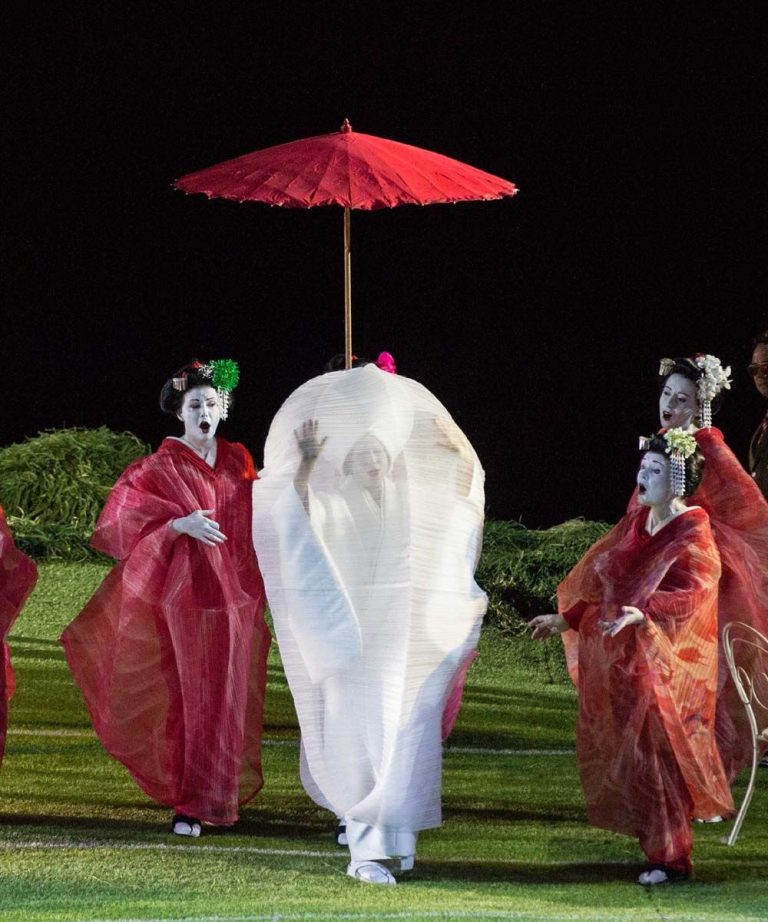
Too Easy Gospel
Squalor characterises Roberto Abbado’s production of Madama Butterfly once we get into the second act – Butterfly and Suzuki go shabbily dressed and live on a building site. This jars at first. But the approach grew on me: it displays the ingloriousness of betrayal. In Act 1, the cavalier Pinkerton tells the consul in Nagasaki about his good fortune. He has acquired a lease on a house for 999 years, yet is free each month to cancel it; the bride he will put in it cost him a mere 100 yen. He sings a hymn to the man of enterprise: ‘His anchor boldly he casts at random, until a sudden squall upsets his ship, then up go sails and rigging. And life is not worth living if he can’t win the best and fairest’. The consul retorts, È un facile vangelo – ‘that gospel is too easy’. He tries to make Pinkerton see that for Butterfly the wedding is real. She gives herself to him heart and soul. Pinkerton nods pensively: he is not wicked, yet can’t conceive of anything but a provisional commitment. When he finally sees that Butterfly is a real human being, not a plaything, it is too late. The pathos of his outcry at the end is heartfelt, but shallow. The tragedy was predictable, and was his doing. Pinkerton is a type of the narcissistic lover. He comes across as startlingly contemporary. As for Butterfly, she is timeless in her patient, self-sacrificing waiting. This interpretation of the role remains unsurpassed.
